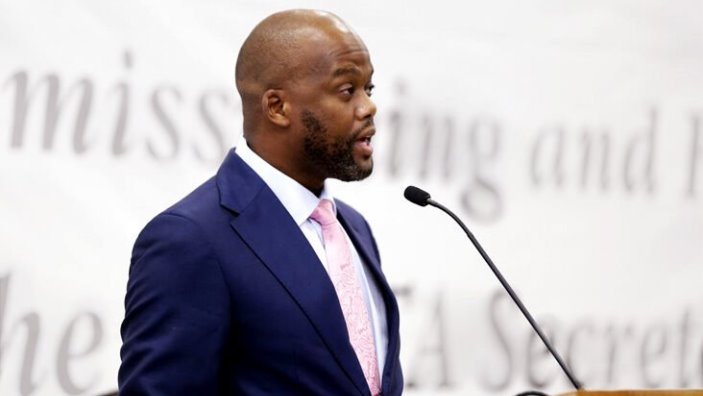Leaders of New York’s Assembly and Senate called on Governor Andrew Cuomo to resign just hours after he said stepping down because of rising sexual-harassment allegations by former staffers would be “anti-Democratic.”
New York Senate Majority Leader Andrea Stewart-Cousins, who like Cuomo is a Democrat, said Sunday that with new accusers of Cuomo stepping forward seemingly every day and the governor embroiled in multiple scandals, focus is being drawn away from the business of government. “We need to govern without daily distraction,” she said. “For the good of the state, Governor Cuomo must resign.”
Assembly Speaker Carl Heastie, also a Democrat, agreed with Stewart-Cousins, saying, “We have many challenges to address, and I think it is time for the governor to seriously consider whether he can effectively meet the needs of the people of New York.”
The statements came after Cuomo continued to insist that he won’t step down from office, despite two more former staffers coming forward to accuse him of sexual misconduct. “I’m not going to resign because of allegations,” Cuomo told reporters in a telephone call earlier Sunday.
The premise of resigning because of allegations is actually anti-democratic.
The Democrat governor apologized in a Wednesday press briefing for upsetting female staffers, but he denied ever touching anyone inappropriately and said he wouldn’t resign. At that point, three former employees had accused him of sexual harassment. Two more women came forward on Sunday – former aides Karen Hinton and Ana Liss – to accuse Cuomo of sexual misconduct.
A spokesman for Cuomo dismissed Hinton’s allegations as completely false and likened the actions alleged by Liss as typically affectionate behavior for a politician. “Reporters and photographers have covered the governor for 14 years watching him kiss men and women and posing for pictures,” the spokesman said.
The Washington Post on Saturday reported that Cuomo fostered a “hostile” and “toxic” workplace going back to the 1990s, citing comments by 20 former aides.
New York Attorney General Letitia James is conducting an investigation of the recent harassment allegations. “There is no way I resign,” Cuomo told reporters on Sunday. “Let’s do the attorney general, let’s get the findings and go from there.”
Cuomo’s statement that resigning because of allegations would be “anti-democratic” is ironic in light of the fact that he called for New York’s then-attorney general, Eric Schneiderman, to step down after assault accusations were made against him in a New Yorker magazine article.
“Given the damning pattern of facts and corroboration laid out in the article, I do not believe it is possible for Eric Schneiderman to continue to serve as attorney general,” Cuomo said at the time. “For the good of the office, he should resign.”
Cuomo’s office issued two statements late last month regarding the outside investigation of his conduct. In both cases, the statements ended with a vow that “We will have no further comment until the report is issued.” Nevertheless, he has repeatedly made statements about the allegations in the ensuing days.
While the harassment allegations have created the biggest firestorm, another scandal involving the governor has bigger consequences – life-and-death consequences. Cuomo aide Melissa DeRossa admitted last month that the governor’s office withheld data on New York’s Covid-19 death toll in nursing homes because the governor was under fire for a policy forcing such facilities to accept patients infected with the virus.
The New York Times and Wall Street Journal said on Thursday that Cuomo’s aides doctored a state Health Department report last July to understate the number of nursing home residents who died from Covid-19. The report was edited to count only the deaths that occurred in nursing homes, not the thousands of additional deaths involving residents of long-term care facilities who became ill and later died in hospitals.
The governor and his supporters then used the misleading data to tout a relatively low rate of nursing home deaths in New York. Cuomo brushed off criticism as politically motivated and found time during the crisis to write a book on his handling of the Covid-19 pandemic.
“Look at the basic facts where New York is versus other states,” Cuomo told reporters in August. “You look at where New York is as a percentage of nursing home deaths, it’s all the way at the bottom of the list.”
That was no longer the case after New York’s data was corrected to show its true nursing home death toll at more than 15,000, including about 6,000 lives that ended after the patients were moved to hospitals.


Connect with us on our socials: